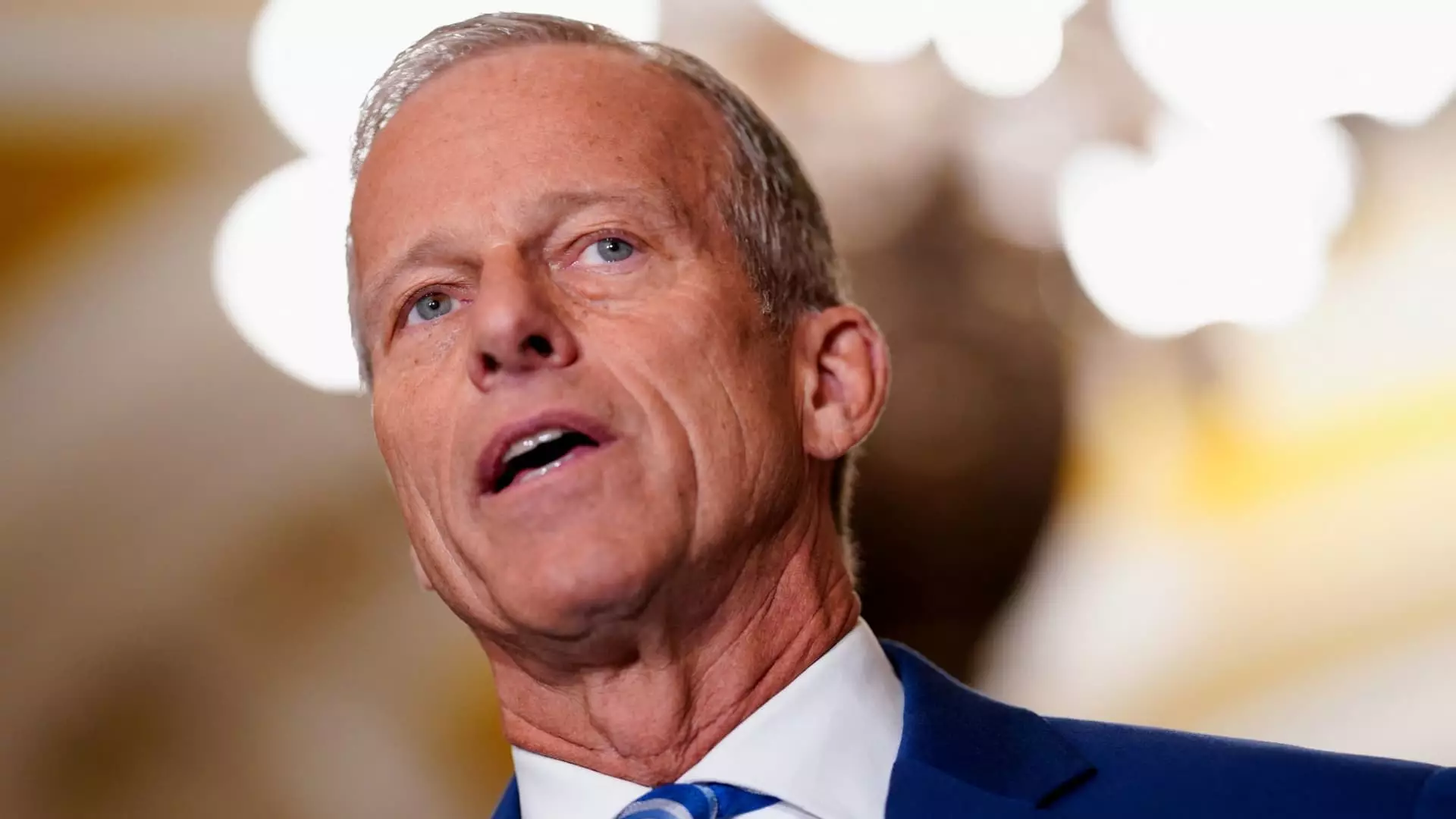The recent procedural vote in the U.S. Senate on President Trump’s enormous spending package—dubbed the “big, beautiful bill”—was less a triumph of legislative unity and more a vivid display of internal Republican fractures and deep-seated political discomfort. In a 51-49 vote, this staggeringly large bill barely cleared a critical procedural hurdle, a narrow margin made possible only after last-minute capitulations from previously firm Republican dissenters. The spectacle of three holdout senators reversing their “no” votes in the eleventh hour, coupled with the reluctant support of others, paints a portrait of a GOP desperate to cling to a fragile majority rather than a party confidently pushing sound policy.
This vote was far from a simple procedural step; it was a tense litmus test of Republican cohesion and leadership under Majority Leader John Thune. His vow to deliver this mammoth bill to President Trump’s desk by July 4 seemed more an aspiration born of political theatrics than strategic clarity. The fact that Democratic opposition was unanimous, and that the bill’s content remains under fierce scrutiny, reveals an uneasy alliance leaning precariously on narrow margins.
A Divisive Measure Amidst Deep Policy Rifts
The bill’s passage highlights a profound crisis—not just in partisanship, but in the very direction of domestic policy within the Republican ranks. Key policy elements, especially proposed deep cuts to Medicaid, have sparked vehement opposition even within the ranks of GOP lawmakers. The ensuing discord suggests that the bill is less an articulation of a cohesive Republican vision and more a political gamble tethered to Trump’s eroding influence and the strategic impulse to pass anything labeled as his “promise.”
Furthermore, the tenuous support in the House foreshadows an equally messy battle ahead. Narrow Republican majorities in both chambers mean that just a handful of dissenters could scuttle the entire effort. This precariousness calls into question the prudence of rushing such an expansive and consequential bill before thorough debate and public scrutiny. The bill’s 940-page length alone is a symptom of a legislative process broken—one where complexity is weaponized to suppress transparent policy analysis.
The Democratic Strategy: Delaying Through Deliberation
Senate Minority Leader Chuck Schumer’s call to read the 940-page bill aloud on the Senate floor is a deliberate and rhetorical masterstroke, emblematic of the Democrats’ approach under this chaotic political context. Rather than simply opposing the bill on principle, Schumer aims to emphasize the bill’s unwieldiness and lack of accountability. His strategy forces the Senate to grapple directly with the bill’s enormity and complexity, spotlighting the dangers of hasty legislation driven by political deadlines rather than the public interest.
In a sense, the Democrats hold a crucial responsibility amid this disarray. Their insistence on transparency, while politically motivated, also serves as a check against the reckless governance that can emerge when party loyalty supersedes substantive debate. Whether or not this tactic will delay or alter the bill substantially remains to be seen, but it undeniably exposes the intense policy disagreements that extend beyond partisan slogans.
The Peril of Political Deadlines Over Policy Substance
The fixation on the July 4 deadline is emblematic of the broader malaise afflicting contemporary American politics. Deadlines imposed by political theater do not align with the rigorous demands of policy-making, especially when billions of taxpayer dollars and essential social programs are at stake. Trump’s insistence that failure to pass the bill would be a “betrayal” underscores how political narratives are being weaponized to force legislative outcomes devoid of genuine consensus.
This performative urgency risks alienating moderate Republicans and independent voters who demand responsible governance over partisan brinkmanship. Moreover, it betrays an underlying contempt for democratic deliberation by reducing complex policy discussions to mere acts of political compliance. It is no surprise, then, that this bill has exposed the GOP’s internal contradictions and the broader dysfunction of Washington’s legislative process.
A Warning Sign for Governance Amid Polarization
In the final analysis, this procedural victory is less a win and more a warning sign—of a Republican Party fractured by ideology, leadership struggles, and the disproportionate power of Trump’s political brand. It signals a legislative future fraught with instability, where passion and politics often overwhelm sober policymaking. The debt the party incurs by rushing this bill under such conditions could prove a costly legacy, jeopardizing long-term governance stability for a short-term political score.
Ultimately, there is no glory in barely escaping legislative defeat due to wavering party discipline. The true challenge lies in crafting sustainable, inclusive policies that address the country’s complex needs without sacrificing democratic principles to partisan expediency. The “big, beautiful” label may capture attention, but it does little to disguise the messy reality behind this spectacle of governance at its most contentious and chaotic.

